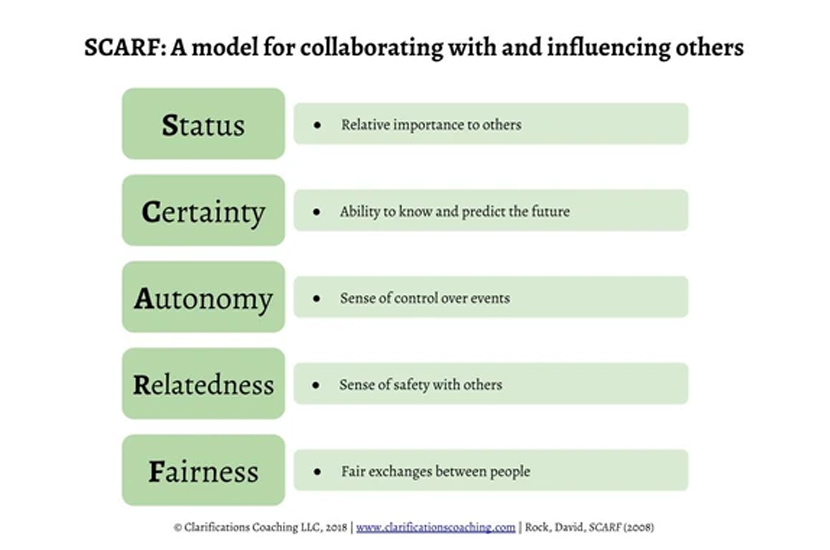
by Claire Jones | Feb 28, 2019 | Blogs
In a previous blog post, I discussed the Employee Engagement Survey that I had once created in an effort to measure how well a certain management team was addressing the SCARF needs of their employees. The survey revealed that staff members felt that their needs for...

by Claire Jones | Feb 27, 2019 | Blogs
The NeuroLeadership Institute has identified Facilitating Change as the final skill set that leaders need to develop in order to be effective and efficient: they must be able to enact change initiatives in an successful and non-threatening manner. Unfortunately,...

by Claire Jones | Feb 15, 2019 | Blogs
Collaborating with and influencing others is the third skill set that the NeuroLeadership Institute has identified as being integral to effective and efficient leadership. Leaders must be able to collaborate with others as well as manage and influence others in order...

by Claire Jones | Feb 8, 2019 | Blogs
The NeuroLeadership Institute has identified Self Regulation as one of the four facets of effective and efficient leadership. Leaders must be able to effectively regulate their own emotions and actions in order to make sure their businesses operate with intentional...

by Claire Jones | Jan 30, 2019 | Blogs
Leadership roles encounter a variety of problems in the organizations within which they work. Often, levels of employee morale, engagement, and motivation can be a prominent issue. One way leaders can attempt to address this issue is through an understanding of...

by Claire Jones | Jan 25, 2019 | Blogs
Making Decisions has been identified by the NeuroLeadership Institute as one of the four facets of effective and efficient leadership. Leaders must be able to make sound and timely decisions to make sure their organizations run smoothly. To move us beyond previous...







